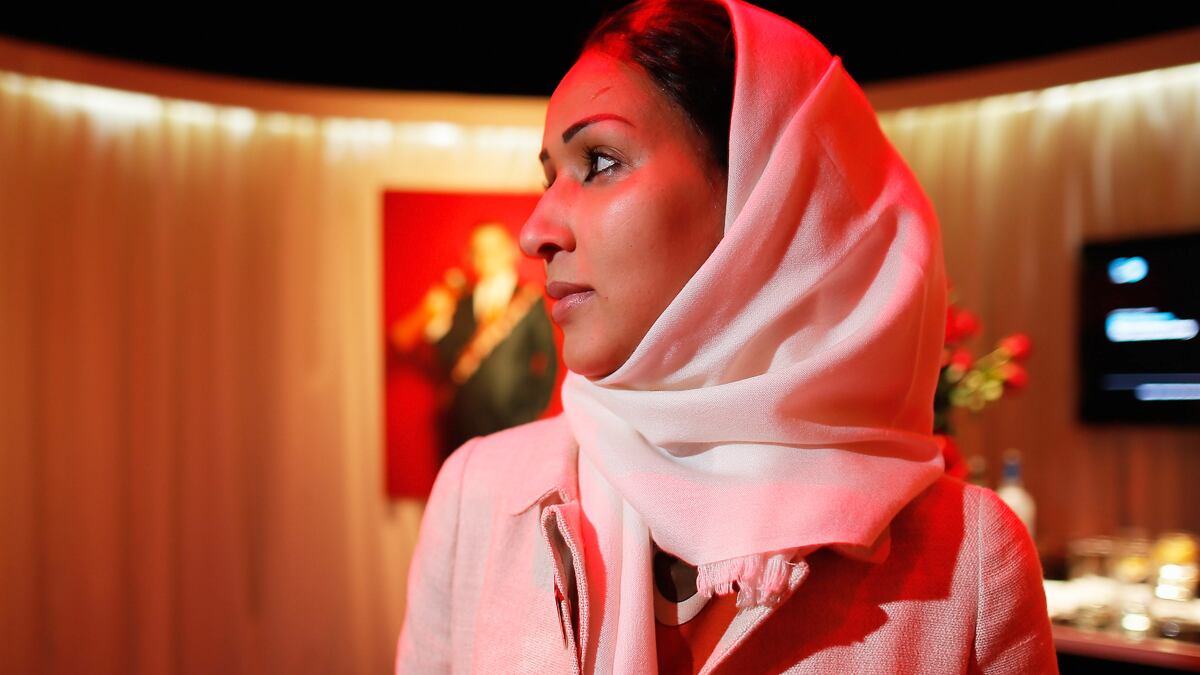The Economist has described the Oslo Freedom Forum, now in its fourth year, as being on its way to becoming the Davos of human rights. But that’s not quite right. Davos is an annual European conference where the well-to-do meet to do good. The Oslo Freedom Forum, on the other hand, is a European conference of do-gooders conspiring to stir up trouble.
There is perhaps no better example than Manal al-Sharif, one of three winners this year of the forum’s Vaclav Havel prize for Creative Dissent. Last year al-Sharif, an information security specialist from Saudi Arabia, decided to go for a drive in her home town of Khobar, Saudi Arabia, where driving is illegal for women. She recorded herself and posted the video to the Internet. It became a YouTube sensation and also changed her life.
“My colleagues have called me a traitor to my managers at my job,” she told me in an interview. “I have received death threats, rape threats, anonymous people go to my family and tell my parents, ‘Your daughter is a traitor.’”
ADVERTISEMENT
The Freedom Forum is the brainchild of a Venezuelan named Thor Halvorssen, a 36-year-old filmmaker whose preppy good looks make him appear more like a J-Crew model than a hardened activist. In an interview he said he was inspired to create a human-rights organization on August 15, 2004. That was the day his mother was shot by Venezuelan security forces while demonstrating in Caracas. She and others were urging former U.S. President Jimmy Carter, who was observing a referendum on the rule of Hugo Chavez, to consider more evidence of voter fraud.
“The existing human rights institutions—Amnesty and Human Rights Watch—were not addressing a deteriorating situation; they were hopelessly absent, so why not create a new group?” Halvorssen said.
That new group became the Human Rights Foundation, which in 2009 launched the first Oslo Freedom Forum.

At first Halvorssen said he wanted the forum to be a place where the heroes of the Cold War era, men like Nelson Mandela, Alexander Solzhenitsyn, Vaclav Havel and Elie Weisel, could deliver a “final lecture.” Havel appeared at the conference before he died. Weisel gave the inaugural address to the group.
Halvorssen chose Oslo for the forum because it was neutral ground. “Norway is a country that has never invaded another,” he said. “Bringing international delegates here, what are their governments going to say, ‘You are taking orders from the Norwegian empire’?”
Norwegians have mixed feelings about the forum. On the first day of this year’s conference, the Marxist Newspaper, KlasseKampen (Class Struggle), ran a negative article on its front page, essentially saying it was empty pageantry. The Norwegian foreign ministry, however, donated around $80,000 to the conference this year.
“As I see it, this conference lifts the cases of individuals,” says Jonas Gahr Støre, Norway’s foreign minister. “This gives them a chance to testify on the world stage.”
The Freedom Forum has evolved since 2009. This year it featured a talk from Somaly Mam, a Cambodian former sex slave who is now a leading abolitionist crusading against the practice in her home country. Pyotr Verzilov, a Russian activist, presented videos of his wife’s punk rock group, “Pussy Riot,” and their impromptu protests in Red Square and near well-known Moscow landmarks. (Full disclosure: I participated in a panel discussion with Verzilov on the state of the Russian opposition in Vladimir Putin’s Russia.)
Not all of the presentations were hits with the audience. The actress Julia Ormond gave a rambling speech on human slavery and the global supply chain for manufacturing. She ended her speech by singing a "Amazing Grace" a cappella.
At a breakfast roundtable session sponsored by a California-based charity, Humanity United, a former British diplomat named Carne Ross proposed ending nearly all secrecy in Western diplomacy. I would share more details of that talk, but Ross asked that his remarks be off the record.
The real action, however, happens in the times between the formal talks and panels. This year a group of Arab writers and editors at the conference came together to discuss a new kind of platform to defend secularism. Amir Ahmad Nasr, a Sudanese blogger, described the project as a “hub to self organize.” The idea for a website and publication has been percolating with Nasser Wedaddy, a Mauritanian American, and Ahmed Benchemsi, a Moroccan publisher and editor who founded an iconic Arabic news magazine in his home country that eventually had to close after the country’s king led a boycott against it. The working title of the effort is “Free Arabs.”
Wedaddy told me Charter 77, the movement founded during the Cold War by Havel for anti-authoritarian dissidents, was one inspiration. “The Berlin wall fell in 1989, we are still waiting for our walls to fall,” he said.
The news that Havel is inspiring a new generation of Arab liberals pleases Halvorssen. “It exceeds our expectations,” he said.





